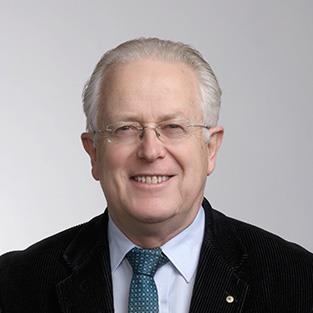CSANZ President’s Medal winner for 2021 announced
 The Cardiac Society of Australia and New Zealand (CSANZ) has awarded the President’s Medal to Professor Michael Feneley in recognition of his service as Clinical Practice advisor and most recently through the current MBS review and its implementation.
The Cardiac Society of Australia and New Zealand (CSANZ) has awarded the President’s Medal to Professor Michael Feneley in recognition of his service as Clinical Practice advisor and most recently through the current MBS review and its implementation.
Announcing the award at the recent CSANZ 2021 meeting the society said Professor Feneley has been the knowledgeable advocate for clinicians and patients with the government and worked on behalf of the society to ensure the best outcomes for over 20 years as Clinical Practice Advisor.
“The current MBS review has involved numerous meetings, written work, and communications on behalf of the Society and its members with government. This work has been extremely important to ensuring modifications and updates to the MBS for cardiology related items were made to allow best clinical practice and best outcomes for patients while recognising the work of clinicians.”
Professor Feneley’s vast experience and commitment to advise on these matters while the MBS changes were being implemented was of immeasurable importance to the Society and its Members, it said.
Low sodium salt prevents stroke and MACE
Swapping out regular salt for a lower sodium salt substitute can reduce stroke and major adverse cardiovascular events in high risk populations with high salt intake.
The study, led by the George Institute for Global Health and reported at the ESC Congress 2021, involved more than 20,000 people from 600 villages in rural China followed for a mean of almost five years. Participants either had a history of stroke (72.6%) or were 60+ years and had hypertension.
The study found the rate of fatal or nonfatal stroke events was significantly lower in the salt-substitute group (70% sodium chloride/30% potassium chloride) than in the regular-salt (100% sodium chloride) group (29.14 events v 33.65 events per 1000 person-years; rate ratio, 0.86; 95% CI, 0.77 to 0.96; P=0.006).
The rates of major cardiovascular events (49.09 events v 56.29 events per 1000 person-years; rate ratio, 0.87; 95% CI, 0.80 to 0.94; P<0.001) and death (39.28 events vs. 44.61 events per 1000 person-years; rate ratio, 0.88; 95% CI, 0.82 to 0.95; P<0.001) also favoured the salt substitute.
There was no significant difference between the groups in the safety outcome of definite or probable hyperkalemia (3.35 events v 3.30 events per 1000 person-years; rate ratio, 1.04; 95% CI, 0.80 to 1.37; P=0.76).
The investigators, including Professor Bruce Neal, said salt substitution was a practical, low cost intervention which had the potential to reduce health inequities related to cardiovascular disease.
Read more in the NEJM
Doctors hit the bottle to relieve pandemic distress
Alcohol is one of the main coping strategies used by Australian healthcare workers in response to the pandemic, a national survey has revealed.
Conducted in September 2020, the survey on wellbeing and coping strategies elicited responses from 7846 frontline healthcare workers including more than 2400 medical staff, and showed that over a quarter (26.3%) reported increased alcohol use.
The most commonly reported adaptive coping strategies were exercise (45%), social connections (32%) and yoga or meditation (26%), whereas few used workplace support programs (6%) or sought help from a doctor or psychologist (18%).
Use of alcohol was associated with poor mental health and worse personal relationships, the study found.
The study investigators said the widespread use of maladaptive coping strategies by healthcare workers during the second wave highlighted an urgent need to improve access and uptake of professional support services for psychological distress.
Read more in General Hospital Psychiatry